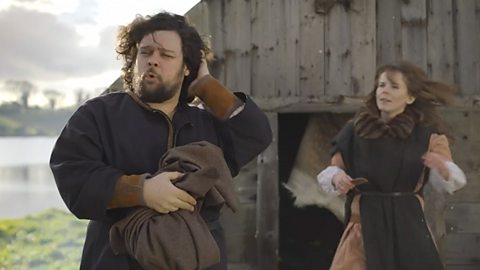Where did the Vikings explore?
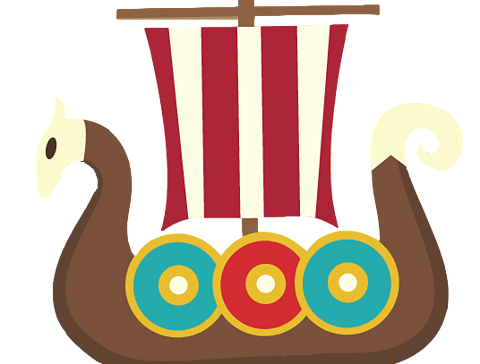
- The Vikings were great explorers and travellers. Viking ships reachedāÆBritain, France, Spain, Italy and North Africa.
- Traders made long journeys overland throughāÆRussia, reaching as far south asāÆConstantinopleāÆin modern-day Turkey.
- Some merchants traveled further east toāÆBaghdadāÆin Iraq.
- A few daring explorers made voyages to Iceland and beyond, travelling across the Atlantic Ocean toāÆNorth America.
- Explorer Leif Erikson traveled to Newfoundland in modern-day Canada. Eric the Red traveled to Greenland.

What did the Vikings trade?
The Vikings traded all over Europe and as far east as Central Asia.
They bought goods and materials such asāÆsilver, silk, spices, wine, jewellery, glass and pottery.
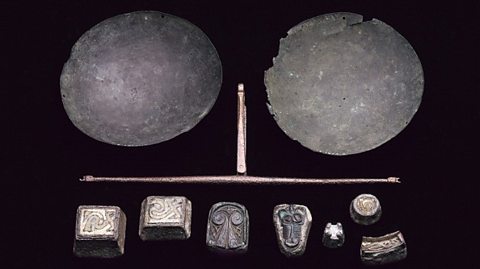
In return, they sold items like honey, tin, wheat, wool, wood, iron, fur, leather, fish and walrus ivory.
Everywhere they went, the VikingsāÆbought andāÆsoldāÆenslaved people too.
Viking traders carried a set ofāÆfolding scalesāÆwhich they used to weigh coins to make sure they got a fair deal.
How did they find their way?
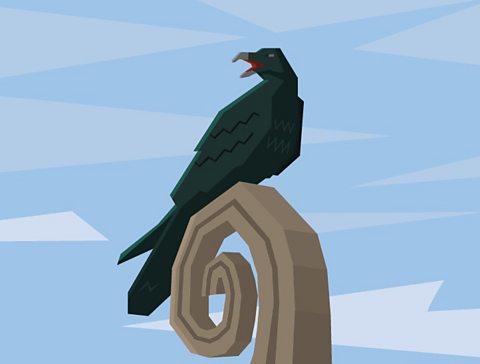
The Vikings did not use maps. Vikings sailed close to the coast whenever possible, watching forāÆlandmarks.
Out of sight of land, they looked forāÆthe sun:āÆwest (towards the sunset) meant they were headed for England; east (towards the sunrise) meant home to Denmark or Norway.
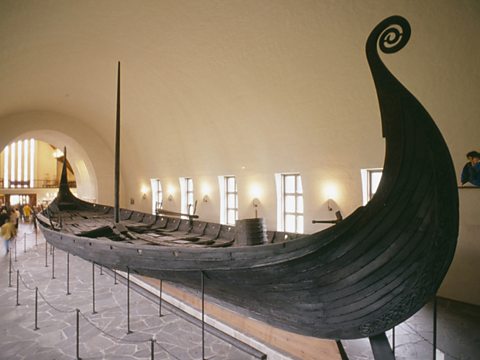
The Vikings invented a kind ofāÆsun-shadow boardāÆo°ł sundial to help find their way. At night they watched the skies and could use the position of the stars to determine which direction they were heading.
Seamen knew a lot aboutāÆwindsāÆa²Ō»åāÆsea currents.āÆBy watching birds or even the colour of the water, an experienced sailor could tell when land was close.

How do we know about longships?
Wood rots and metal rusts away after a thousand years or more in the ground, but some remains show what Viking ships were like.
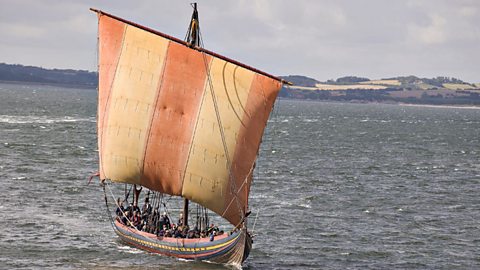
- Two Viking ships were found by archaeologistsāÆon farms in Norway.
- The Gokstad shipāÆwas dug up in 1880.āÆThe Oseberg shipāÆwas found in 1904.
- Both ships were buried in Viking funerals betweenāÆAD800 and 900.
- The Gokstad ship is 23 metres long, the largest Viking ship ever found. It was big enough for 32 oarsmen and had 16 oars on each side.
- These ships are now in a museum in Oslo, Norway.
Watch: Viking ships
For centuries, the secret of Viking success was their ships.
To sail in them, was to be a Viking.
They were built from shaped, wooden planks held together with iron rivets and wooden frames.
Any gaps were sealed with animal hair to make them waterproof.
Rowing one of these, well on a day like today is actually quite pleasant, if you can get into the rhythm.
Itās not such a bad way to spend a morning.
Oh, hold on, hold on! Itās all gone terrible.
These ships meant they could sail all around Scandinavia and then on to Ireland, England and Scotland. Transporting people,animals, weapons and tools.
Itās been estimated that in the case of the bigger vessels, with crews of 70 men, to keep them going through a sailing season lasting 4 months, would require the surplus from 460 farms.
Or alternatively, you could just get your food from raiding and pillaging.
If there was no wind, the Viking boats could be powered by oars.
But they really came into their own as sailing ships. Then they were able to travel much, much further.
But not all Viking boats and ships were meant for sailing across the open ocean.
Some Vikings used their vessels to sail up the mighty rivers in Russia and beyond.
This would take them to the mysterious lands in the east, where they could find riches beyond their wildest dreams.
āMorning VikingsāāWhere can I be? Up hereā
But travelling along the rivers presented a whole new challenge.
If they reached a point where the river was blocked by ice or rapids, the boats could be taken out of the water and rolled on logs beyond the obstacles.
Sometimes they would even transport their vessels between different rivers.Thatās why these boats are smaller than the ocean going ships, they werenāt so heavy and they could be moved, metre by metre, over land, from one place to another.
Imagine how long it would take to get anywhere?
You leave home in Sweden and you cross the Baltic in ships and get everything into boats like this. And every now and again youāve got to take the boat out of the water, and move it over land.
These guys must have been away for years at a time.
Itās time-consuming and it is laborious but thereās enough men here to move a boat this size. So the system does workā¦ as history shows.
Activities
Activity 1: Viking explorers
Click on each of the Vikings to find out how far they travelled and what they discovered.
Activity 2: Quiz ā Viking traders and explorers
Bitesize Primary games. gameBitesize Primary games
Play fun and educational primary games in science, maths, English, history, geography, art, computing and modern languages.

More on Vikings
Find out more by working through a topic
- count10 of 10
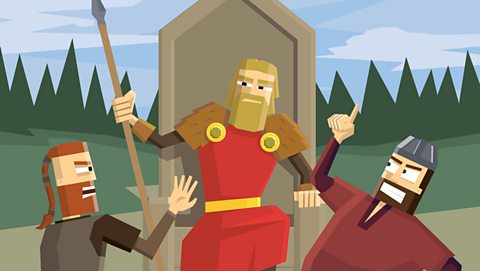
- count1 of 10
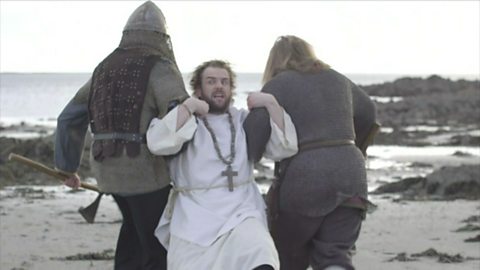
- count2 of 10
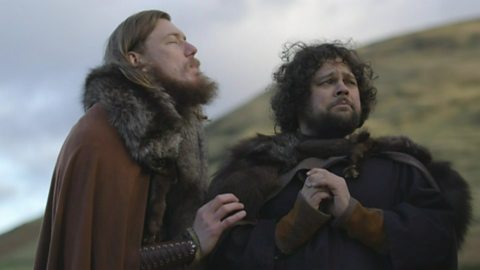
- count3 of 10
